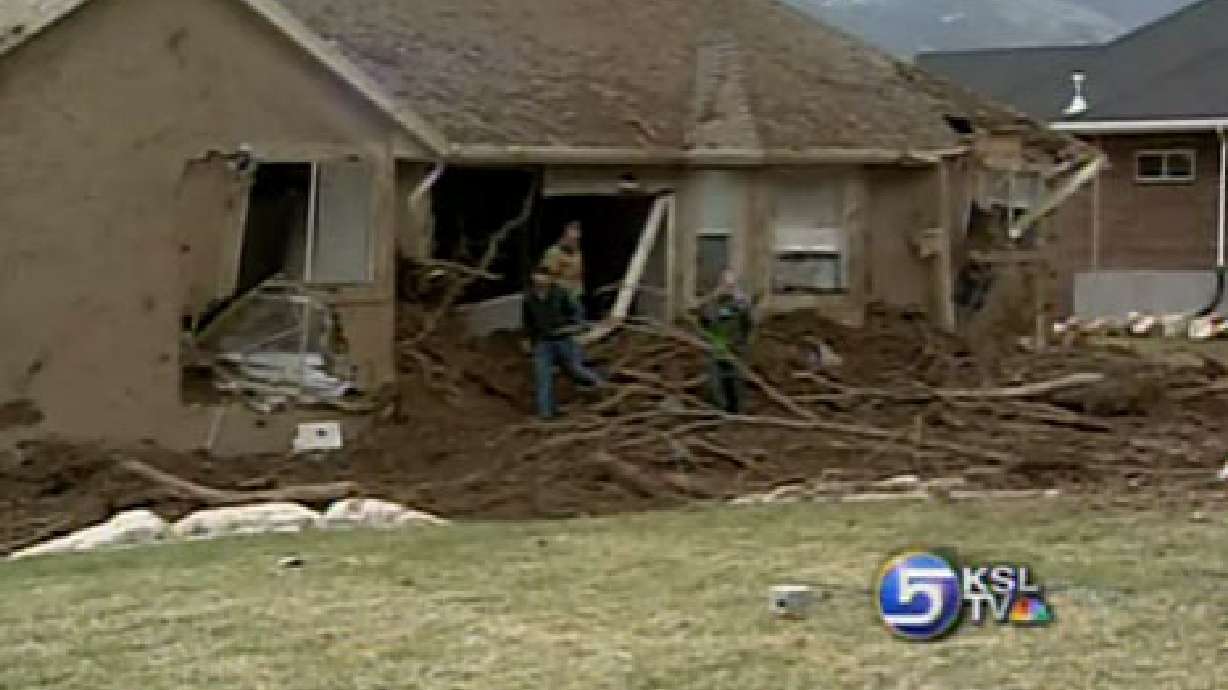Estimated read time: 1-2 minutes
This archived news story is available only for your personal, non-commercial use. Information in the story may be outdated or superseded by additional information. Reading or replaying the story in its archived form does not constitute a republication of the story.
Marc Giauque ReportingIt's happened in Cedar Hills, Layton, and most recently South Weber, right next door to Deann Hogan's house.
"We were just sitting, visiting after dinner and heard a rumbling that we thought was an earthquake at first. And we looked out our back window and saw their fence was gone and we thought perhaps it was a twister or something, but then when rocks started flying through the window, we just left and glass was flying everywhere."
New homes ruined in seconds or minutes, sometimes hours, sometimes days by land movement in new subdivisions.
"Yes, it makes me a little nervous."
South Weber Mayor Joe Gerch is in just one of many cities working to decide what's safe and what isn't.
"Not only did the developer have to have it engineered as far as retention walls and that kinda thing, but also the city had their engineers examine it."
So was it examined closely enough? As in other areas, the city certainly thought it was.
"It certainly makes you more in tune to making sure you're not making mistakes that will affect people's live."
Gerch's city is among many dealing with rapid growth.
"You see all over every city, particularly along the Wasatch Front, homes creeping up the hillside, whether it be a earthquake fault or a slippery or oversaturated soil, there's always that pressure."
Dealing with that pressure is always a tightrope walk.
"You can't blame a developer or a landowner to maximize the money they have in their property."
Gerchee says more power is being taken out of city and local government hands by state legislation.









